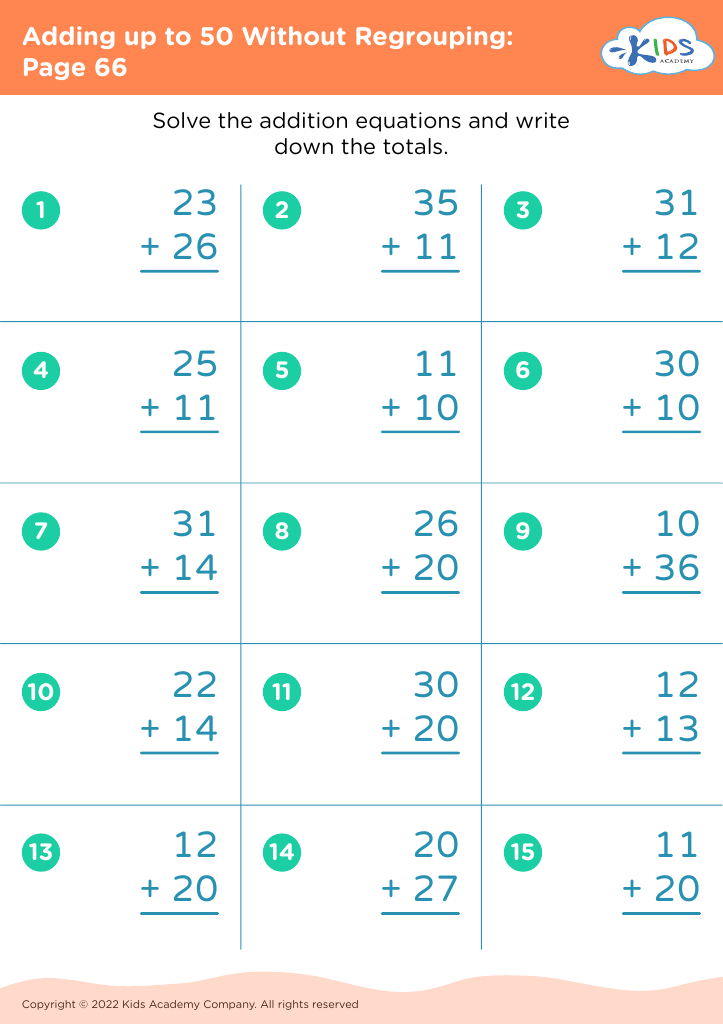Practice division Addition & Subtraction Worksheets for Ages 8-9
3 filtered results
-
From - To
Welcome to our comprehensive collection of division, addition, and subtraction worksheets designed specifically for children ages 8-9! Engaging and interactive, these worksheets provide a fun way to reinforce essential math skills. Each worksheet focuses on key concepts, allowing your child to practice their division, addition, and subtraction in various forms. Whether your child is mastering long division or refining basic addition and subtraction, our resources cater to different learning styles and skill levels. Encourage confidence in math with repetitive practice and instant feedback. Explore our selection to help your child build a solid foundation in math while enjoying the learning process!
Parents and teachers should prioritize practicing division, addition, and subtraction for children aged 8-9 due to the fundamental role these basic math skills play in a child’s overall academic success and daily life. At this developmental stage, children solidify their understanding of number concepts, which sets the foundation for more advanced math phenomena, such as fractions and algebra.
Mastering these operations improves children’s problem-solving abilities, helping them apply math in real-life situations, like managing money or measuring for a project. Additionally, proficiency in addition, subtraction, and division boosts confidence, reducing math anxiety and encouraging a positive attitude towards learning.
Regular practice encourages mental math, strengthens cognitive development, and enhances concentration and perseverance—qualities essential for academic achievement. Furthermore, by engaging with parents and teachers, children receive support and dedicated time, fostering a love for learning and collaboration.
It’s important to remember that math skills are cumulative; gaps in understanding can lead to challenges in subsequent grades. By emphasizing these basic operations now, parents and teachers equip children with the necessary skills to navigate their educational journey successfully. Such knowledge not only supports school but is essential for lifelong skills in technology, science, and critical thinking.



















